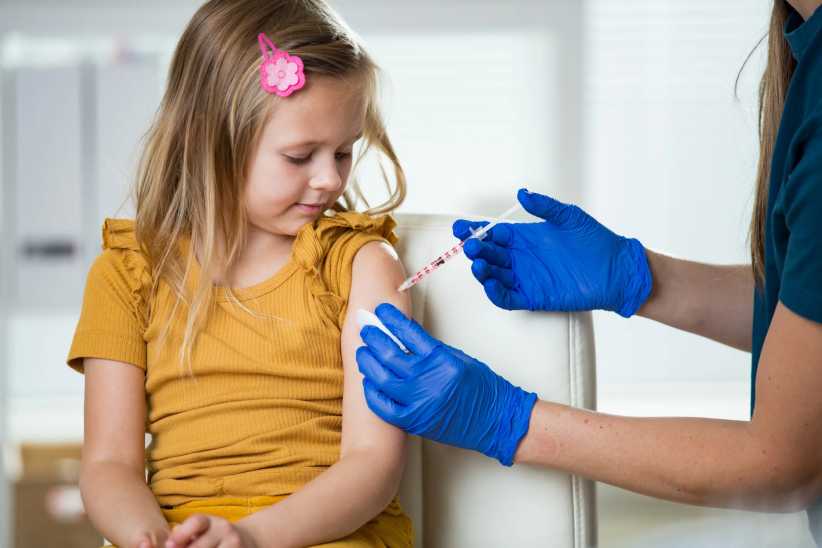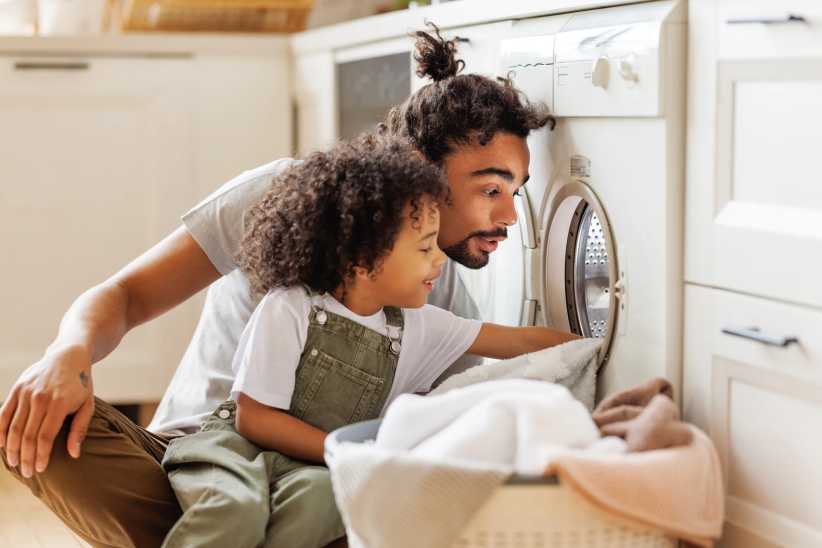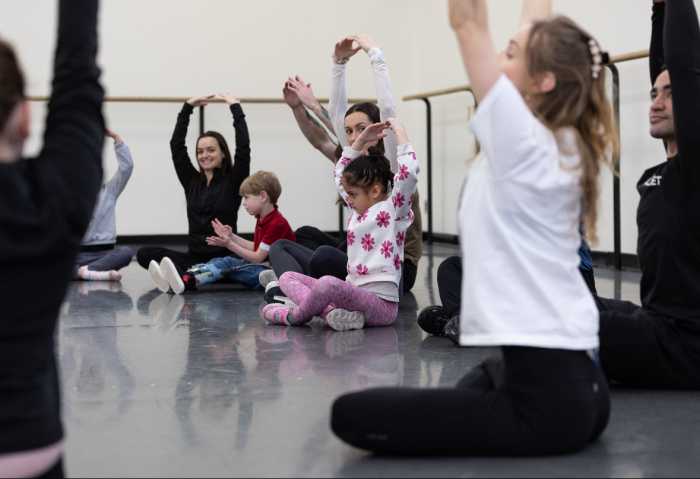
There’s an old saying about relationships that “sex changes everything”—well, in the same vein, we say that a baby (and even just planning or hoping for a baby) also changes everything, including and especially sex.
To lift the curtain on topics that have sometimes been considered taboo, hush-hush, or sensitive and awkward, we got the scoop from a variety of women (most of them moms themselves) in the sexual health and wellness world—from psychologists, OB-GYNS, and RNs, to sexual anthropologists and authors, to CEOs of lingerie and sex-positive feminine hygiene and sex toy brands (scroll all the way to the end of this post to get the scoop on who they are and where to follow them on social media). They all chimed in from their different areas of expertise to offer insight on common FAQs for planning, pregnant, and new mothers.
Fertility & Conception
What should couples keep in mind if they’re trying to conceive naturally?
“Timing is everything when trying to conceive. Once ovulation happens, the egg can be fertilized for 12-24 hours (sperm can live for up to five days). I recommend that when couples are actively trying to get pregnant, they track their cycles and ovulation, either by using a charting method or an ovulation prediction kit. It’s so disheartening every time that pregnancy test comes up negative, but remember that it can take up to 12 months for many women to become pregnant.” –Diana Spalding, RN, certified nurse midwife, owner of Gathered Birth, and Motherly Expert
“[There are] some steps that can increase chances of getting pregnant. Having unprotected intercourse every two days or so, from days nine through 14-15 will help ‘cover’ the fertility window.”–Dr. Iffath Hoskins, OB-GYN at NYU Langone
“Pressure is one of the worst things for sex, making it feel more like a clinical activity. While it is important to have an understanding of the science of conception, sometimes having fun with your partner and removing that pressure can reap great reproductive rewards.” –Sarah Forbes, former curator of The Museum of Sex and author of Sex in the Museum: My Unlikely Career at New York’s Most Provocative Museum
What factors determine if a couple should see a doctor about possible fertility issues?
“The general recommendation that if a woman is 35 or under, healthy, and has been trying to get pregnant for a year, she should seek out a fertility specialist. Healthy women over 35 should try for six months. Women who are over 40 and women who have health concerns should seek medical guidance right away.” –Diana Spalding
“The CDC defines infertility as a disease… If you’re in your 30s and you can’t get or stay pregnant, [be aware that] you may have a medical issue like blocked tubes, fibroid tumors, PCOS, or more.” –Andrea Syrtash, relationship expert and founder of pregnantish
“Infertility can be primary (never got pregnant), or secondary (got pregnant before, with or without a live birth, but now can’t)…. Couples should tell the doctor everything—foods, medicines, activities, stresses, work hours, work exposures, etc. There are many examples where one or both [people] in the couple thought something was insignificant to the problem, but it was very important and needed to be addressed/corrected in order to get success.”–Dr. Iffath Hoskins
What are some common concerns or misconceptions about conception and fertility?
“If it takes a while, a lot of couples’ main concerns turn to sex feeling routine or stressful. It can no longer feel like this hot, loving, fun thing, and rather a pressured means to an end.” –Alexandra Zissu, eco lifestyle expert and author of The Complete Organic Pregnancy, and co-author of Get on Top: Of Your Pleasure, Sexuality & Wellness: A Vagina Revolution
“I think there is a great crisis of both masculinity and femininity when it comes to reproduction and an assumption that it should happen right away. We want to be mechanically perfect, rather than human. Particularly as many are having children later in life, feeling a pressure of reproductive clocks, we want what we want yesterday. Stress, at least for most people, is neither an aphrodisiac nor positive for conception. As diligent we are about taking prenatal vitamins and watching what goes into our bodies when trying to conceive, we need to educate ourselves that Mother Nature doesn’t often follow our commands.” –Sarah Forbes
Sex During Pregnancy
Are there any medical reasons to avoid sex during pregnancy?
“If [a woman] is at risk for pre-term labor, or has had vaginal bleeding or contractions, her medical team may advise her not to have sex. If her placenta is on or close to her cervix, she should also abstain from sex. And if her water has broken, she shouldn’t have sex.” –Diana Spalding
“There’s the big myth that you can somehow hurt a baby by having sex while pregnant—there is no truth to this whatsoever. In fact, many doctors ask you to have sex close to your due date as one of the many natural ways to bring on labor. Bottom line: A couple should feel free to be as sexual as they want to be when pregnant. If you have any questions or concerns, say about having anal sex if the pregnant partner has new hemorrhoids (a delightful addition to any pregnant body!), check in with your OB or midwife.” –Alexandra Zissu
How might the physical changes of pregnancy affect a couple’s sex life?
“If you’ve gotten the green light, sex during pregnancy is great. Many women actually find a boost in their sex drive when they are pregnant—the surge of hormones and being in awe of how awesome their body is can really put them in the mood. It’s also a nice reminder that even though your body and life are going through massive changes, you’re still you—sexy, fun, amazing you.” –Diana Spalding
“As you grow bigger and bigger, some women feel hot and ready to get down, and others might not be totally into the idea of being sexual at a new size. Some partners find the changes in their woman’s body sexy, others don’t. Many couples share that it takes a little getting used to—mainly mentally—to consider penetrative sex when a baby is kicking around inside of you. But this is all totally par for the course, part of pregnancy. And in many ways these concerns, and having sex through them, sets soon-to-be parents up to parent their child.” –Alexandra Zissu

Sex After Baby
How long should a woman wait to have sex again after giving birth?
“When it comes to sex after giving birth, you should wait for any bleeding to stop first. It’s extremely important that you give your body time to heal! When you choose to start having sex again, it is a very personal thing and many women feel more comfortable waiting until they have had a check-up with the doctor. Last year we did some research with Mush, a social app for mums, and found that most new mums (70 percent) waited between two and six months to have sex after giving birth. The most important thing is to wait until you are physically and emotionally ready to, and always remember to communicate with your partner!” –Tania Boler, founder of Elvie (a Kegel trainer)
“The general rule is six weeks, but to be honest, I don’t love that recommendation. The reason behind it is that by six weeks, the uterus should be back to its pre-pregnancy size, and this is often when the postpartum visit with the doctor or midwife is—it’s important for them to take a peek at the vagina and cervix to make sure they’ve healed and it’s safe to have sex.” –Diana Spalding
How might sex be different after childbirth?
“I think the biggest hurdle for a lot of couples when you get that okay [to have sex again] and both people are ready to move forward with that, the reality is that there is some pain. Lubrication is really important, there is going to be some discomfort, it’s going to need to be taken slow, and partner trepidation on both sides is really common.” –Logan Levkoff, PhD, sexuality and relationship educator
“Many of the post-pregnancy concerns involve the time it might take for a woman’s body to fully heal, especially if there is tearing and stitching at birth or if a woman has had a C-section, or sometimes a woman might hurt or break her tailbone, etc.; How both members of the couple feel about their bodies post-pregnancy (a lot of partners pack on sympathy pounds!); about having any non-baby time for intimacy; about what breastfeeding may do to their sex life (in a good and in a bad way), especially in a couple where breasts are a big part of play.” –Alexandra Zissu
“Pregnancy does not mean you need to stop being a sexual entity, nor does motherhood. But for many, it will be a re-negotiation of the version of body and sexuality that existed beforehand. I think giving ourselves a little permission to be evolving in this space is so important as well as to understand everyone will also have their own version and timeline of what postpartum sex is.” –Sarah Forbes
[gravityform id=”15″ title=”false” description=”false” ajax=”true”]
How can postpartum depression affect a couple’s sex life?
“There is nothing post-pregnancy that doesn’t impact a couple’s intimate life. One of the really important things when someone has the blues or postpartum depression is to feel connected to your partner. Now, that might not mean you’re not having any kind of penetrative sex, but certainly feeling connectedness, feeling safe, feeling like you’re being heard, is super important.” –Logan Levkoff
“You may not realize how important your sexual connection is for communication in your relationship until it goes away. It’s not just about the physical intimacy; often during ‘pillow talk,’ couples communicate in other ways that provide emotional connection and care.” –Alexandra Sacks, MD, reproductive psychiatrist and co-author of the forthcoming book How Come No One Told Me?: The Emotional Guide to Pregnancy and the First Year of Motherhood
Sex-Positivity & Wellness
Why is sex important in a healthy parenting partnership?
“Adding children to any household changes its dynamics and if you allow it, it can outright kill your sex life. Studies say maintaining a healthy sex life has a significant positive impact on our relationships which in turn can lead to healthy and happy co-parenting. So we have to be deliberate in prioritizing and protecting our sex life from falling prey to the inevitable busy family life. We have to find ways to bring sexy back once we have shifted roles from ‘husband and wife’ to ‘mom and dad.’” –Uyo Okebie-Eichelberger, founder and creative director, You! Lingerie
“It’s no secret that you’re a better person when you feel better—and sexual health is a really imperative (and often forgotten) part of overall health. Feeling sexually satisfied and empowered is an important part of caring for yourself, which will affect how you’re able to care for others.” –Polly Rodriguez, CEO of Unbound
“Sexuality within a relationship is not just about pleasure and orgasms, but it is also connection and intimacy. It is exactly this intimacy that needs to be maintained, particularly in the face of the hard work of parenthood and how trying this role can be on relationships.” –Sarah Forbes
How can being proactive about sexual wellness make for a better sex life for a couple?
“I think this all goes back to communication. From pleasure, to sexual health, to preventing unplanned pregnancy, everything is better when you’re talking about it! [My company] Sustain was created to enable conversations about sexual and reproductive health, to get women (and men!) talking about sex. We live in a time where around 34 percent of women are having orgasms from casual sex and only 21 percent of sexually active women use condoms regularly. It’s time for us all to start talking, because with conversation comes change.” –Meika Hollender, founder & CEO of Sustain, and co-author of Get on Top: Of Your Pleasure, Sexuality & Wellness: A Vagina Revolution
How important are Kegels?
“Every woman who wants to feel stronger from the inside, improve their bladder control, sexual sensation, or reduce back pain can benefit from effective Kegel workouts. The problem is that most women don’t think about doing pelvic floor exercises until they are pregnant, or start to experience issues like bladder weakness or prolapse. It can be difficult to exercise a muscle you can’t see, or even stay motivated without the ability to track your progress.” –Tania Boler
“All of those pelvic floor muscles are super critical, not just before, during, and after pregnancy, not just for incontinence, but also for sex and quality of orgasms.” –Logan Levkoff
What should women keep in mind if they aren’t feeling “sexy” because of the changes in their bodies and the shifts in their sex life with their partner?
“I think each person has to decide what sex means to them outside of trying to get pregnant or to fulfill your partner… the moment we start to define it for ourselves, we take back power in an activity that often can feel powerless. It’s not selfish to ask for what you want in the bedroom and most often partners are excited to learn about what you need. I’d also say that masturbating, especially with a vibrator, can reinvigorate your libido and remind you how great an orgasm can feel.” –Polly Rodriguez
“Pregnancy does some crazy things to our bodies but we must be kind to ourselves, be patient, and cut ourselves some slack. I’d love to remind new moms about the incredible feat their bodies have just accomplished. You brought life into this world, your body grew and nourished your baby for nine months. And if you are breastfeeding, it still is.” –Uyo Okebie-Eichelberger

Good Vibes
We asked Polly Rodriguez, CEO of Unbound—a retail company with the goal of offering great sexual wellness products that are affordable and approachable for any woman or femme-identifying human to use as a tool to explore, and feel empowered by, their sexuality—to offer her expertise on how sex toys can enhance the sex lives of expectant mamas and new parents.
What role can sex toys play in overall sexual health, and specifically for new moms who may be creating a new definition of sex in their lives?
It’s reported that 70 percent of women need clitoral stimulation in order to orgasm and most can’t achieve that through penetrative sex, so women who feel guilty about not being able to orgasm during sex are holding themselves to an unachievable standard. Incorporating a vibrator into sex with a partner can allow you to reach orgasm more easily, taking off a good deal of pressure you’re probably already facing in other aspects of your life. Similarly, masturbating with a vibrator and using lube can serve as a great reminder that sex feels great and that regardless of where you are in your motherhood journey, you are deserving of self-love.
What should pregnant or postpartum women be looking for in a vibrator?
It should be easy to use, because you’re not going to have time to mess around with a complicated vibe. I’d also recommend that it have a lot of variations in vibration speeds and intensities so that, as you’re recovering from childbirth, you can adjust accordingly. I’d also recommend a vibe that remains external, so as not to exacerbate any internal issues that might have arisen during childbirth—at least for a certain period of time. Not only that, but water-proof vibes are great, because you can use them in the bath—something that will really help you, as a busy mom, kill two proverbial birds with one stone… I’d also definitely recommend focusing on the quality of materials—the industry isn’t regulated, so look for medical grade silicon, and make sure there are no phthalates in your product.
How do the benefits of regular orgasms translate for expectant or postpartum moms?
Well, for one, orgasms certainly help with sleep. It also helps you reestablish a relationship with your body, which you’ve been sharing for a while with your newborn. Orgasms also increase the level of oxytocin in your body, which is the hormone tied to bonding. At a time in your life when you’re probably very stressed, it also boosts endorphin levels via cortisol, which results in deep relaxation.
To learn more and to shop, visit unboundbabes.com!
Meet Our Sex-perts
Tania Boler, founder of Elvie (a Kegel trainer),
elvie.com | Insta: @hello.elvie | Twitter: @helloelvie
Sarah Forbes, former curator of the Museum of Sex and author of Sex in the Museum: My Unlikely Career at New York’s Most Provocative Museum
curatorofsex.com | Insta & Twitter: @curatorofsex | Insta: @mamasexbook
Meika Hollender, founder and CEO of Sustain (natural feminine hygiene and sexual health products), and co-author of Get on Top: Of Your Pleasure, Sexuality & Wellness: A Vagina Revolution
sustainnatural.com | Insta & Twitter: @missmeiks & @sustain
Dr. Iffath Hoskins, OB-GYN at NYU Langone
nyulangone.org | Insta & Twitter: @nyulangone
Logan Levkoff, PhD, sexuality and relationship educator
loganlevkoff.com | Insta & Twitter: @LoganLevkoff
Uyo Okebie-Eichelberger, founder and creative director of You! Lingerie (for pregnant and nursing women)
you-lingerie.com | Insta: @you_lingerie | Twitter: @youlingerie
Polly Rodriguez, CEO of Unbound
unboundbabes.com | Insta & Twitter: @unboundbabes
Alexandra Sacks, MD, reproductive psychiatrist and co-author of the forthcoming book How Come No One Told Me?: The Emotional Guide to Pregnancy and the First Year of Motherhood
alexandrasacksmd.com | Insta: @alexandrasacksmd | Twitter: @alexandra_sacks
Diana Spalding, RN, certified nurse midwife, owner of Gathered Birth, and Motherly Expert
mother.ly & gatheredbirth.com | Insta: @mother.ly | Twitter: @motherlymedia
Andrea Syrtash, relationship expert and founder of pregnantish (an online magazine about the challenges of infertility and fertility treatments)
pregnantish.com | Insta: @pregnantish & @andreainny | Twitter: @pregnantishmag & @AndreaSyrtash
Alexandra Zissu, eco lifestyle expert, author of The Complete Organic Pregnancy, and co-author of Get on Top: Of Your Pleasure, Sexuality & Wellness: A Vagina Revolution
alexandrazissu.com | Twitter: @alexandrazissu













